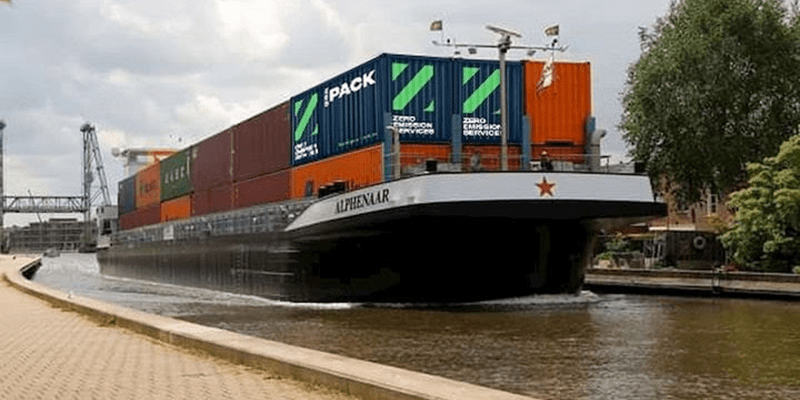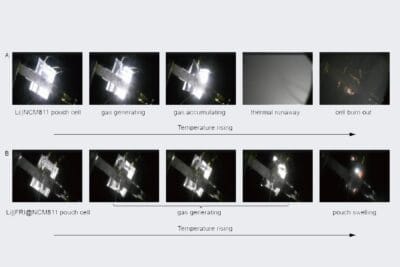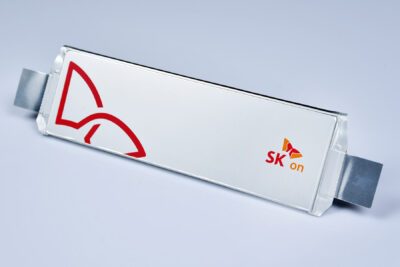Battery swapping for Dutch container ships
With their newly founded joint venture Zero Emission Services (ZES), a Dutch consortium has taken up the cause of zero-emission inland container shipping. The initiators want to put the first electric ship into operation this year.
In concrete terms, the ZES business model envisages leasing exchangeable battery containers, so-called ZES packs, to shipping companies. Around this core idea, the company is putting together a service package with charging stations, green electricity, technical support and a payment concept for ship owners. Depending on the current, size and draught of the ship, two ZES-packs can cover 50 to 100 kilometres, according to a statement by the Dutch consortium.
The project involves cooperation between the Port of Rotterdam, the shipping company Wärtsilä, the energy group Engie and the bank ING. Support is also coming from the Dutch Ministry of Infrastructure and Water Management. The first customer is Heineken. The beer company aims to transport beer from the brewery in Zoeterwoude to Moerdijk for ten years without emissions. Before the end of the year, the first ship, the Alphenaar, is to commute from Alphen aan de Rijn to Moerdijk for this purpose. They expect to add five more vessels as early as 2021.
ZES concentrates primarily on inland container shipping. The company predicts that by 2030, some 150 inland waterway vessels could already be using ZES packs. The plan is to set up a network of “open access charging points” to replace the battery containers. There the empty packs can be exchanged for freshly charged battery containers.
The first site will be built in Alphen aan de Rijn. After that, the focus will be on establishing the Amsterdam-Rotterdam-Antwerp corridor and establishing a connection to Nijmegen. With about 20 charging stations the company says nationwide coverage can be achieved. Meanwhile, the ZES packs have been designed so that they can also be used temporarily on land – for example, to stabilise the power grid or to cover a temporary local electricity demand. The consortium partners emphasise that the containers could also supply electricity based on hydrogen in the future.
The concept if for ZES to mobilise inland navigation, which is actively developed in the Netherlands so that a switch can be made to zero-emission propulsion. Given the high investments in the conversion of the container ships, the company promises low operating costs. Employing a “pay-per-use” tariff, ZES bills the ship owners only for the energy consumed and the rental of the battery containers.
“The Netherlands is a front runner in sustainable transport by water. Well over a third of all goods and 80 per cent of bulk transportation takes place via inland waterways,” says Cora van Nieuwenhuizen, Minister for Infrastructure and Water Management. “Not only does this lessen truck transportation, which reduces traffic, inland vessels also emit significantly less CO2.”





0 Comments